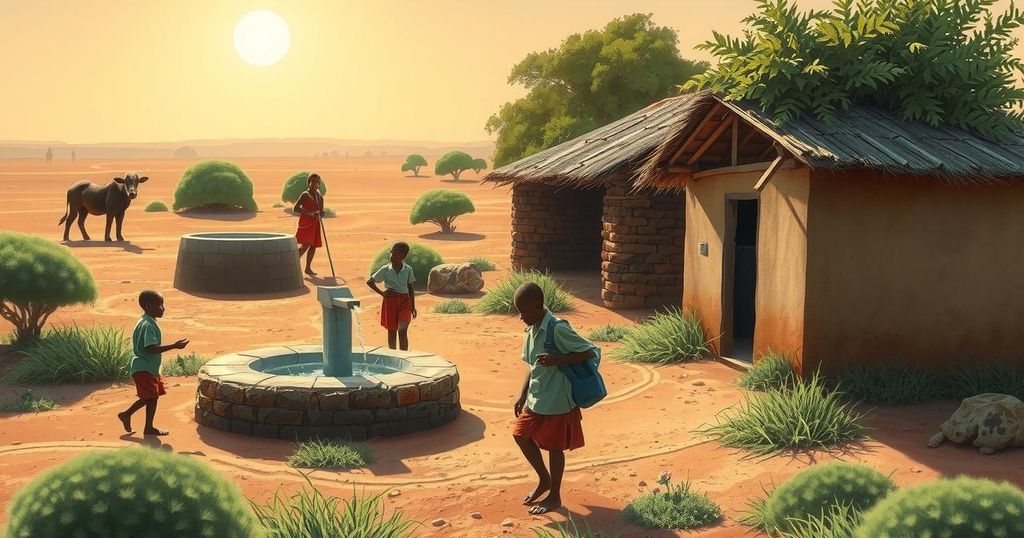Lifestyle
AFRICA, ALASKA, ALASKA HEALTH PROJECT SOUTH SUDAN, ANCHORAGE, ASSOCIATED PRESS, FOOD SECURITY, HEALTH, HI, HICKEL, HUMANITARIAN AID, INTERNALLY DISPLACED PERSONS (IDPS, INTERNATIONAL AID, JACK HICKEL, KTUU, NORTH AMERICA, SOUTH SUDAN, SUDAN, TRUMP, U. S, UNITED STATES, USAID
Amira Khan
0 Comments
Funding Cuts to USAID Raise Alarm for South Sudan’s Children
Dr. Jack Hickel of the Alaska Health Project South Sudan warns that cuts to USAID funding may have catastrophic effects, leading to famine and loss of life in South Sudan. The nonprofit relies heavily on U.S. aid to provide essential services like water and vaccines. Hickel urges Alaskans to advocate for restoring funding and support the organization’s outreach efforts.
Dr. Jack Hickel, the board president of the Alaska Health Project South Sudan, expresses deep concern regarding the potential ramifications of the federal government’s decision to halt USAID programs, especially in South Sudan. The nonprofit organization plays a crucial role in providing essential services such as fresh drinking water and food security in one of the world’s most underprivileged regions.
Despite some improvements since its inception in 2008, such as drilling over 107 wells and helping approximately 100,000 individuals, Hickel describes the dire conditions that persist, including a lack of roads, electricity, sanitation, and running water. He emphasizes that while funding stems mainly from Alaskans, dependency on USAID-funded partner organizations is significant.
The Trump administration’s budget cuts have drastically impacted USAID, leading to the dismissal of over 1,600 U.S.-based staff members. Hickel highlights that these funding reductions are detrimental to their drilling operations and, more importantly, to the humanitarian needs of northern South Sudan, exacerbated by conflict-related refugee influxes.
Funding cuts have critically affected the procurement of vital resources such as food and medicine, which may lead to dire consequences, including famine and preventable deaths. Hickel warns of the imminent cessation of vaccine distributions that save countless lives.
In light of these challenges, Hickel urges Alaskans to contact their elected officials to advocate for the restoration of USAID funding. He believes increasing global awareness about the situation is vital for resuming financial support. Furthermore, the Alaska Health Project South Sudan seeks donations to expand its outreach to affected individuals in the region.
In conclusion, the head of the Alaska Health Project South Sudan, Dr. Jack Hickel, is raising alarm over impending funding cuts to USAID, which threaten essential health services and humanitarian support in South Sudan. The organization, primarily funded by Alaskans, cannot adequately assist the growing needs without additional resources. Hickel’s call to action emphasizes the importance of public awareness and advocacy for restoring necessary funding to avert a humanitarian crisis.
Original Source: www.alaskasnewssource.com




Post Comment